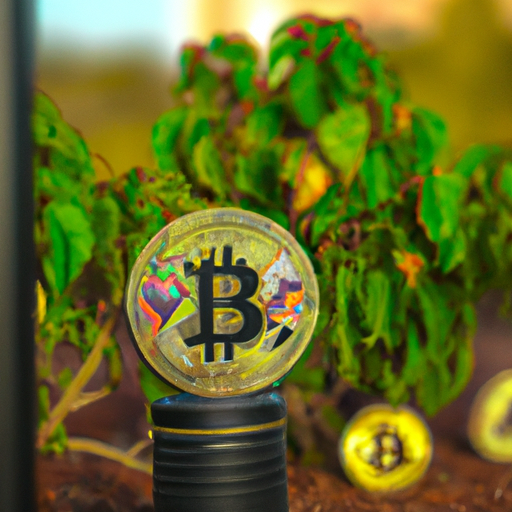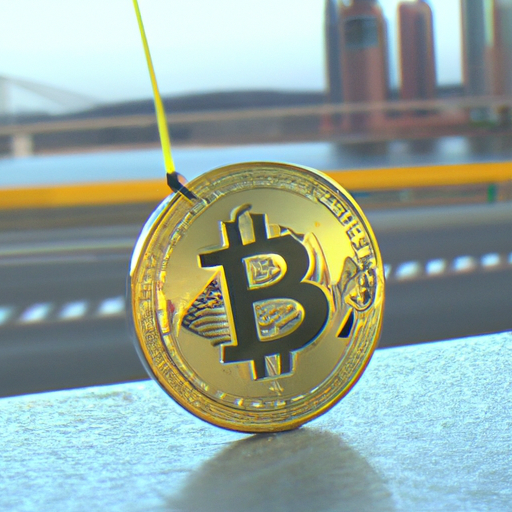Introduction
Bitcoin, the world’s first decentralized digital currency, has been around for over a decade. It has gained popularity among investors and traders as a store of value and a hedge against inflation. However, despite its growing popularity, Bitcoin is unlikely to become a global currency. In this article, we will explore ten reasons why Bitcoin will never be a global currency, but why it is still a good bet against inflation globally.
Reasons Why Bitcoin Will Never Be a Global Currency
1. Volatility
Bitcoin’s price is highly volatile, which makes it unsuitable as a currency. Its value can fluctuate by as much as 10% in a single day, making it difficult to use for everyday transactions. Merchants and consumers need a stable currency to conduct business, and Bitcoin’s volatility makes it an unreliable medium of exchange.
2. Limited Acceptance
Bitcoin is not widely accepted as a payment method. While some merchants and businesses accept Bitcoin, it is still not as widely accepted as traditional currencies. This limits its usefulness as a global currency.
3. Slow Transaction Speeds
Bitcoin transactions can take several minutes to process, which is much slower than traditional payment methods. This makes it impractical for everyday transactions, where speed is essential.
4. High Transaction Fees
Bitcoin transaction fees can be high, especially during periods of high demand. This makes it expensive to use for small transactions, which is a barrier to adoption.
5. Lack of Regulation
Bitcoin is not regulated by any government or financial institution. This lack of regulation makes it difficult for businesses and consumers to trust it as a currency.
6. Security Concerns
Bitcoin is vulnerable to hacking and theft. While there are measures in place to protect Bitcoin wallets, they are not foolproof. This makes it risky to use as a currency.
7. Limited Supply
Bitcoin has a limited supply of 21 million coins. This means that it cannot be used to meet the growing demand for currency worldwide.
8. Energy Consumption
Bitcoin mining consumes a significant amount of energy. This makes it environmentally unfriendly and unsustainable as a global currency.
9. Lack of Privacy
Bitcoin transactions are recorded on a public ledger, which means that they are not entirely private. This lack of privacy is a concern for many users who value their anonymity.
10. Competition from Stablecoins
Stablecoins, such as Tether and USD Coin, are cryptocurrencies that are pegged to the value of traditional currencies. They offer the stability that Bitcoin lacks, making them more suitable as a global currency.

Why Bitcoin Is a Good Bet Against Inflation Globally
While Bitcoin may not be a suitable global currency, it is still a good bet against inflation globally. Here are some reasons why:
1. Limited Supply
Bitcoin’s limited supply makes it a scarce asset, which can protect against inflation. Unlike traditional currencies, which can be printed at will, Bitcoin’s supply is fixed, which means that its value is less likely to be eroded by inflation.
2. Decentralization
Bitcoin is decentralized, which means that it is not controlled by any government or financial institution. This makes it less vulnerable to inflation caused by government policies, such as quantitative easing.
3. Store of Value
Bitcoin has been compared to gold as a store of value. Like gold, Bitcoin is a scarce asset that can hold its value over time. This makes it a good hedge against inflation.
4. Global Acceptance
While Bitcoin may not be a global currency, it is still widely accepted as a store of value and a means of exchange. This global acceptance makes it a useful asset for investors and traders looking to protect against inflation.
Conclusion
Bitcoin may never become a global currency, but it is still a good bet against inflation globally. Its limited supply, decentralization, and global acceptance make it a valuable asset for investors and traders looking to protect against inflation. However, its volatility, limited acceptance, slow transaction speeds, high transaction fees, lack of regulation, security concerns, limited supply, energy consumption, lack of privacy, and competition from stablecoins make it unsuitable as a global currency.




